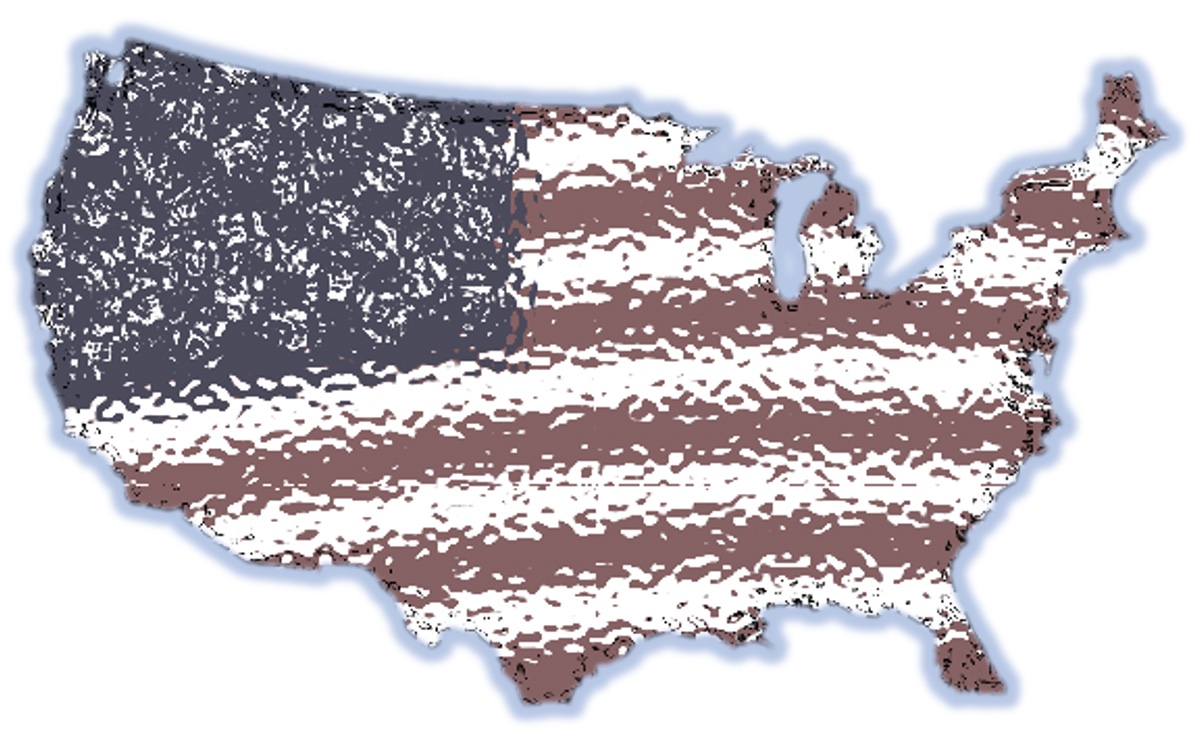What does it mean to love one’s country? This question is too big to permit a simple answer. In a free country we will disagree about patriotism.
A Black athlete, Gwen Berry, refused to salute the flag during the national anthem at the U.S. Olympic Trials last week. Some viewed her as a hero. Others did not. Republican Sen. Ted Cruz of Texas asked in a tweet, “why does the left hate America?”
Of course, America includes a long list of protesting Black athletes, from from Muhammad Ali and Kareem Abdul-Jabbar to Colin Kaepernick and LeBron James. Maybe those who hate these protests are the ones who hate America.
The truth is, we disagree about everything, including who counts as a patriotic, real American. We always have.
The generation of 1776 had to decide whether to pledge their lives, fortunes, and honor to a new nation conceived in liberty. A war broke out. This happened again in the 1860s. Abraham Lincoln invoked the “mystic chords” of national identity. Southern states disagreed. The patriotic vision excluded people like Frederick Douglass, who said (in 1847), “The institutions of this country do not know me, do not recognize me as a man … In such a country as this, I cannot have patriotism.”
Douglass is now recognized as an American icon. But we continue to disagree.
Congress recently honored the police who defended the Capitol during the Jan. 6 insurrection. The congressional commendation celebrated the patriotism of those cops. But some Republicans balked, unhappy with the word “insurrection.”
President Biden has said, “the insurrection was an existential crisis.” But Andrew Clyde (R-Georgia) said it was a lie to call it an insurrection. Rep. Paul Gosar (R-Arizona) said that the Justice Department’s response to Jan. 6 harassed “peaceful patriots.” Each voted against honoring the Capitol police.
We disagree about recent history — and about the deeper past. We disagree about who we are, what our country represents, what unites us — and what divides us.
America is a big, messy place. It includes Gwen Berry. It also includes Ashli Babbitt, who was killed by a cop on Jan. 6 as she tried to enter the House chamber, and George Floyd, who was killed by a cop in Minnesota. It also includes those cops. This is a country of Proud Boys and Antifa. It is a country of Trump-lovers and Ted Cruz voters, Biden-supporters and fans of Kamala Harris.
Which America are we supposed to love? Should we love the American history of colonialism, slavery, and war? Should we love those who claim the 2020 election was stolen? Should we love a country that elected a woman of color as vice president?
There is too much here to love. America is a 300-year-long, continent-spanning process. Something this big cannot simply be loved. Nor can such a thing simply be hated.
This country contains a multitude, as Walt Whitman might say. It includes farmers and fishermen, poets and priests. This is a land of scientific achievement and quack medicine. It is a land of many faiths, including atheism. It is a country of diverse people united by the fact that we are free to be different.
Human beings are more complicated than simple patriotism permits. When freedom is unleashed, we grow and expand and become unruly. As long as we generally leave each other alone, this can work. But it is too much to ask us to come together and sing “Kumbaya.”
Indeed, when one group joins hands and starts singing, another faction will be standing on the sidelines mocking the song. This is the tragic truth of human freedom. It unites us and divides us. It brings us together and drives us apart.
So let’s not be surprised at our divisions. We have always been divided. Division is a sign of the health of a democracy. Conformity indicates the presence of oppression and the death of the human spirit. Liberty vitalizes and invigorates. It invites us to be different and to disagree.
Democracy is messy, ugly, and often unpleasant. Tyrannies are cleaner, perhaps, creating conformity through coercion. But democracies unleash freedom. And liberty promotes diversity. We are not ants or bees. Nor are we cogs in a social machine. We are human beings: unruly, disruptive, creative, and free.


